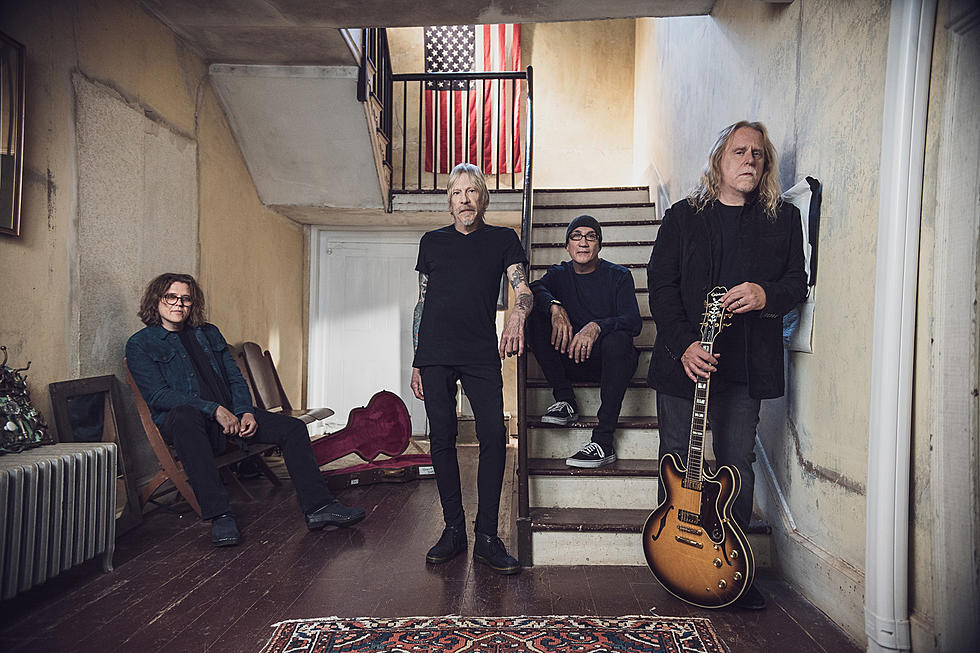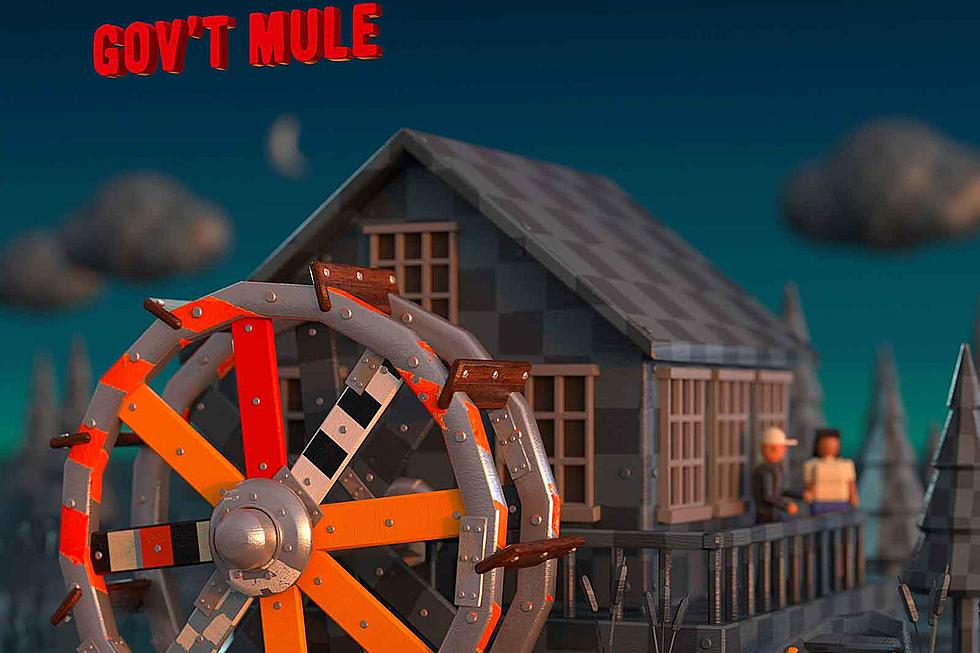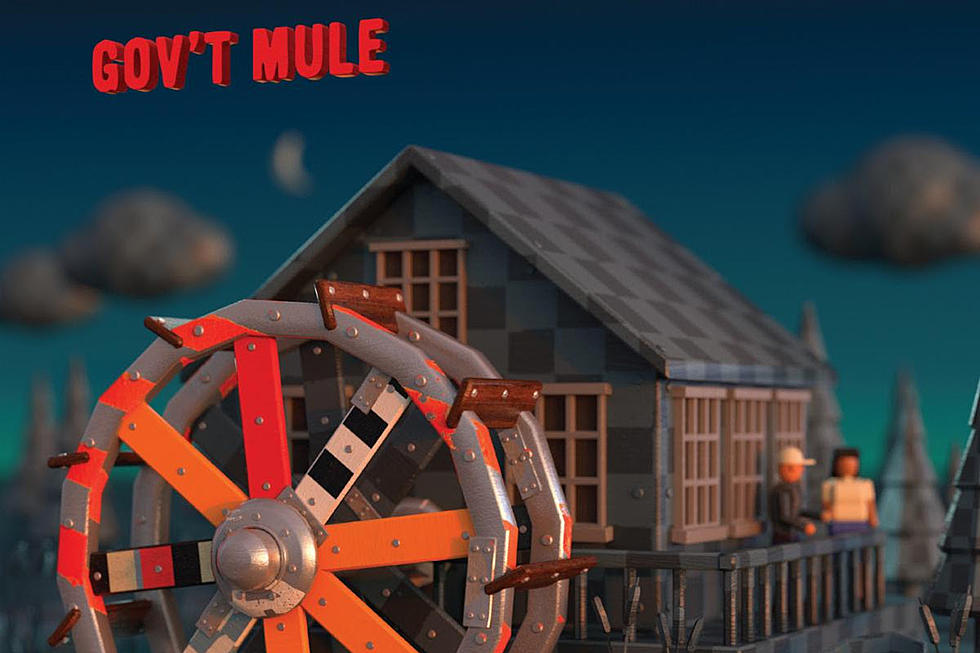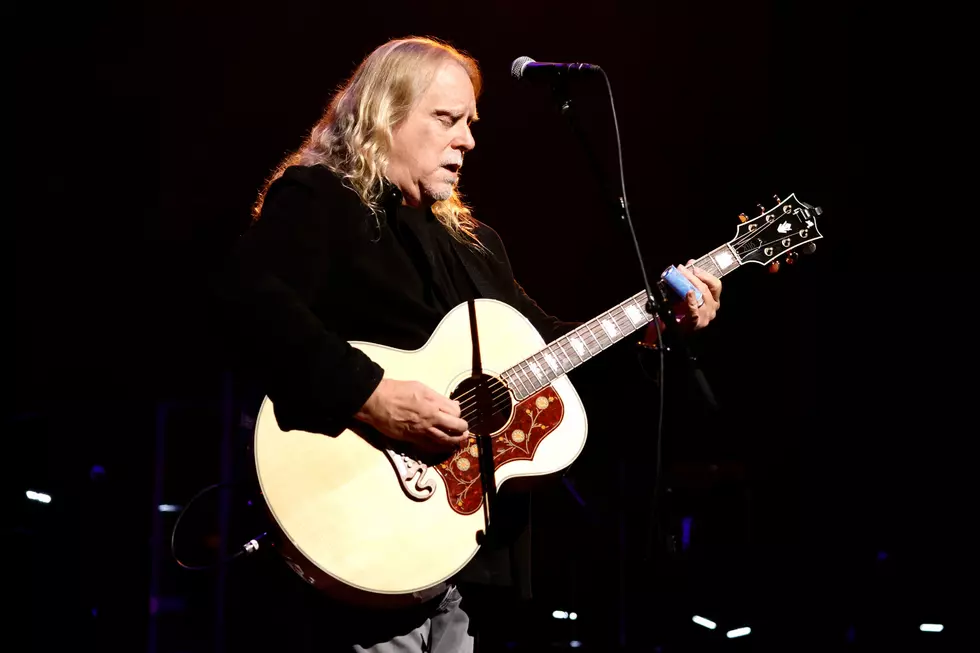
Gov’t Mule Recorded Two New Albums During the Pandemic: Exclusive Interview
The idea of Warren Haynes and Gov't Mule doing a blues album seems so obvious. In fact, you might swear that they'd surely already done one by now, being a band for more than 25 years.
But Heavy Load Blues, due on Nov. 12, is their first-ever blues release. It's a concept that has been percolating for a while, as Haynes tells UCR. "I’ve been thinking of doing a blues record for five or six years," he says. "I had written a handful of traditional blues songs [and] I don’t write many songs that I would consider blues songs."
As is often the case, he had to decide whether the blues idea would manifest itself as a "Mule record," or instead become something that Haynes tackles as his next solo album.
The decision to make it a band endeavor gave the project more "focus," Haynes has previously argued. "Gov't Mule has a collective personality of its own. So we needed to make a record that sounds like Gov't Mule but also different, and sounds like us interpreting what has been a major influence on our music.
The pandemic brought the idea to the forefront, Haynes says. But there was a twist, as he also revealed how Gov't Mule actually ended up making two albums simultaneously.
This new blues album is something that’s been on your mind for a while. What was the process when it came to mapping out and choosing the songs you ultimately decided to tackle?
I’ve been compiling that list for quite a while of possible covers I would want to do. And then there’s the short list of songs that I felt could belong on the same record with those songs, original songs that I’d written. Initially, I didn’t want to do anything we had played before. We tackled “Feel Like Breaking Up Somebody’s Home” because we have a really cool, unique version of that which has kind of grown into itself onstage. I thought it would be important to take a stab at it and see what happens. If it was good, [we] would use it on the record. I think the other ones had been played two or three times. But I mostly didn’t want to approach this music the way Gov’t Mule would normally approach even a blues song. I wanted it to be more stripped down and more traditional, and for it to sonically be completely different. That’s why it was important that we record the way we did.
We went into a studio that had two separate rooms. We made one a blues room and one a Gov’t Mule room. In the big room, we set up all of our normal toys and recorded the way that we normally do. But in the small room with lower ceilings, we just took a bunch of small vintage amplifiers in there. No headphones. We didn’t wear headphones; I had the vocal running through a small vocal monitor. We were right on top of each other like we were on a small stage in a small club. Everything about the two sessions was different except the fact that they’re in the same building. Completely different gear, completely different mindset. We would go in early in the day and work on Gov’t Mule songs for the majority of the day into the night sometime. As it started to get late at night, we’d move over into the blues room and play blues for a few hours and then call it a day. We’d come back the next day and do it again.
It was a great recipe. Because you know, it’s best to play blues late at night anyway. It gave us an opportunity to concentrate all day on making a Mule record and then at the end of the day, just shut your brain off and play blues. It was like taking off ankle weights. It was very relaxing. It was an interesting concept. Of course, we were in the studio longer than we’ve ever been – because we were making two records at the same time.
Watch Gov't Mule Perform 'Snatch It Back and Hold It'
I think the band always finds interesting ways to split their musical brains generally – but that really takes it to the full extent. When will we get to hear that second album of music?
The plan is for next year. I mean, it’s virtually finished now. It’s a matter of how long do we sit on it? I’m sure we’ll make a few last-minute tweaks. But yeah, I’m excited for that as well. The entire time, the thought was, “We won’t space them too far apart, but we’ve got to put some space in between ‘em.”
Your scheduled Halloween shows seem like they’re going to be a lot of fun. First of all, I love that you’re playing the entire new record, basically two weeks before it comes out. What can you tell us about those shows?
It’s cool to have two nights in Atlanta for Halloween. Even when we did Halloween there before, there was only one thematic show. This time, there’s going to be two. The first night, we’re going to do Heavy Load Blues in its entirety, as you mentioned. The second night, we’re celebrating the 50th anniversary of [the Allman Brothers Band's] At Fillmore East. We’re bringing in [original Marshall Tucker Band drummer] Paul Riddle and Charlie Starr [from Blackberry Smoke] to be part of that. In each case, both shows will be two-set shows. There will be a normal Gov’t Mule set and then there will be a thematic set. They turn into long nights, but it’s lots of fun.
How did the idea emerge to do At Fillmore East?
You know, the 50th anniversary is going to come and go. You don’t want to do it for the 51st or 53rd. That’s such a huge record for all of us – but speaking for myself, it’s one of the most influential records in my life.
Some of the folks you’re bringing in, like Charlie Starr, will make it a special night.
Yeah, it’s gonna be a lot of fun. Paul Riddle, the original drummer from the Marshall Tucker Band, has such a history with us and the Allman Brothers and with me personally. You know, Paul played on the live version of “Jessica,” the Allman Brothers live version [from the 2nd Set album] that won a Grammy. Jaimoe was injured at that moment in time and Paul filled in for him, and that particular recording of “Jessica” won a Grammy. So that’s as deep of a connection as it gets.
What does it mean to you to be able to play that entire record live?
It will be a surreal experience because, you know, I’ve talked in interviews about listening to that record on vinyl growing up. I listened to it on 8-track [as well]. We used to have the 8-track and there was this circle of friends, musicians all my age, that used to hang out and play together. We were all huge fans of that record. One of us had the 8-track and sometimes, we’d just put it in and it would just play over and over and over – because if you remember, 8-tracks didn’t stop. They just kept playing until you physically took it out of the machine. I remember one time acknowledging, “Haven’t we heard this about three times?” [Laughs] “Now, let’s put in something else!”
I just have such a history [with that album]. That made an impression on me at an extremely impressionable time of my formative years as a guitar player. I’m not unique in that way, but it was a huge record for me.
Allman Brothers Albums Ranked
Tedeschi Trucks Band Discuss Their Influences
More From Ultimate Classic Rock









